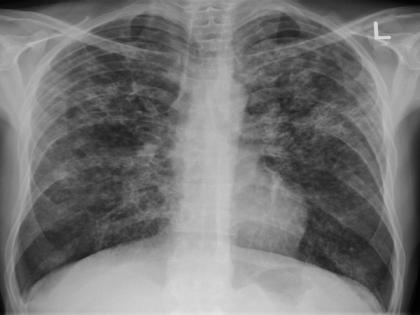Study suggests body clock associated with development of pulmonary fibrosis
By ANI | Published: December 31, 2019 02:57 PM2019-12-31T14:57:26+5:302019-12-31T15:45:07+5:30
A new study has revealed that people who sleep for more than 11 hours or less than four hours regularly are more likely to develop incurable diseases like pulmonary fibrosis as compared to those who sleep for four hours in a day.

Study suggests body clock associated with development of pulmonary fibrosis
A new study has revealed that people who sleep for more than 11 hours or less than four hours regularly are more likely to develop incurable diseases like pulmonary fibrosis as compared to those who sleep for four hours in a day.
The study was published in the Proceedings of the National Academy of Sciences.
According to the study, deadly incurable disease, pulmonary fibrosis can be reduced in vitro by targeting the body clock.
Our internal body clocks regulate nearly every cell in the human body, driving 24-hour cycles in many processes such as sleeping, hormone secretion, and metabolism.
The researchers used human data from the UK Biobank and concluded that pulmonary fibrosis is associated with short and long sleep.
"Pulmonary fibrosis is a devastating condition that is incurable at present. Therefore, the discovery that the body clock is potentially a key player potentially opens new ways to treat or prevent the condition. If these results are confirmed, then sleeping for the optimal time may reduce the impact of this devastating disease," said Dr John Blaikley who led the study.
After the study was concluded, it was found that people who regularly sleep for four or fewer hours in a day have double chances of developing pulmonary fibrosis while those who sleep for 11 hours or longer in a day have triple chances of having the disease, compared to those sleeping 7 hours per day.
Smaller, but still elevated, risks were also seen in people who like to stay up late at night or those who do shift work.
( With inputs from ANI )
Open in app